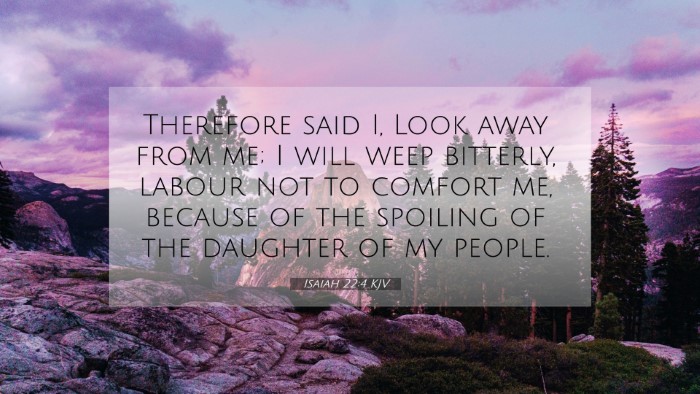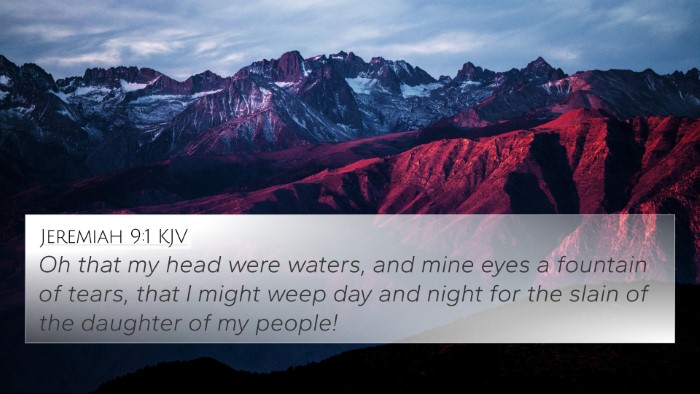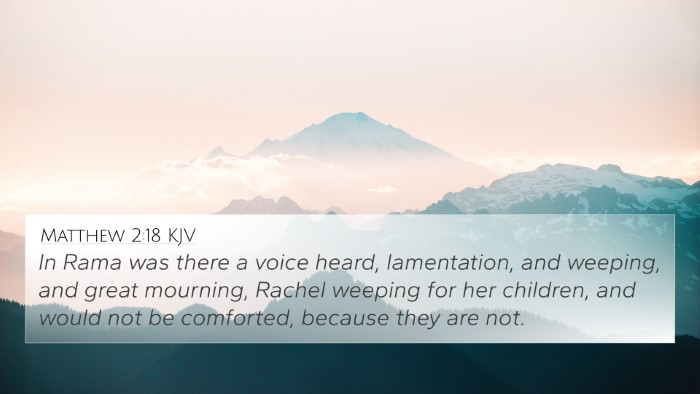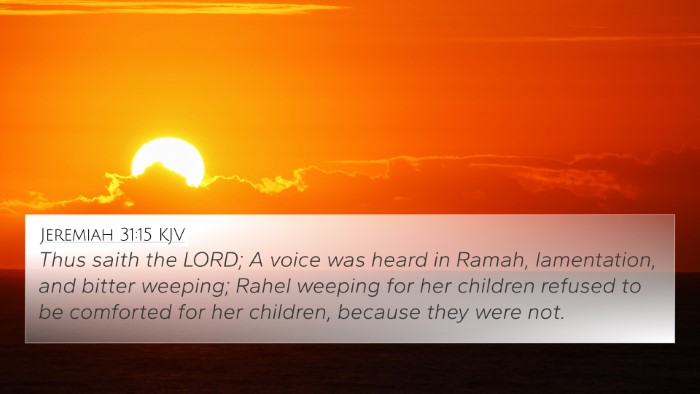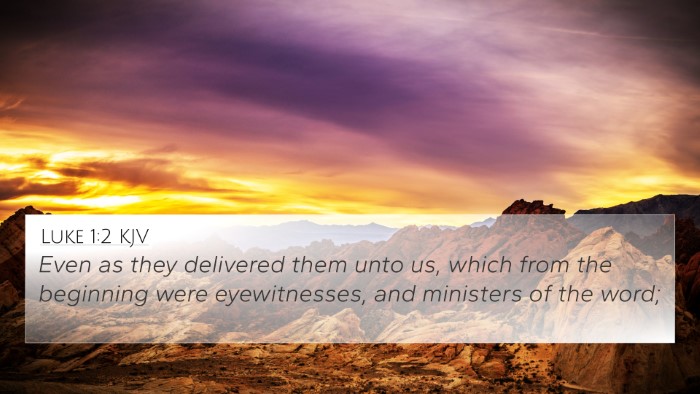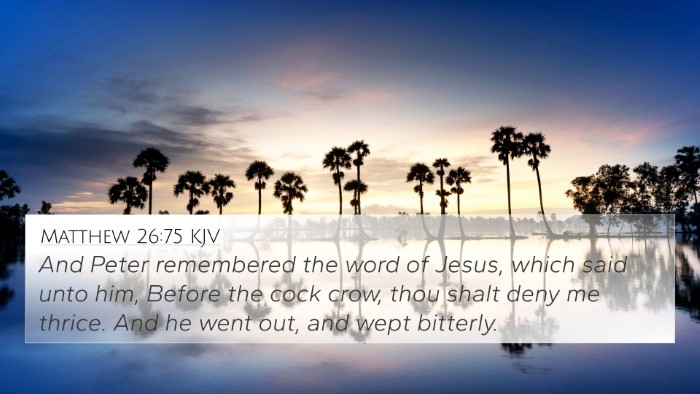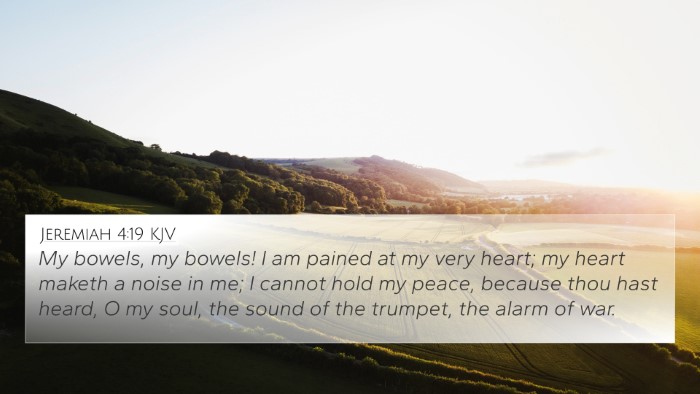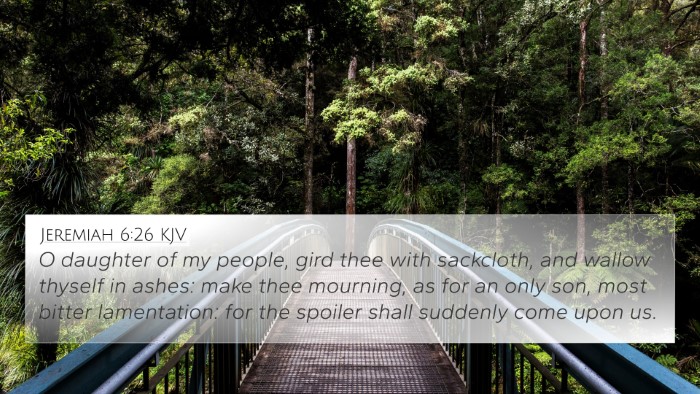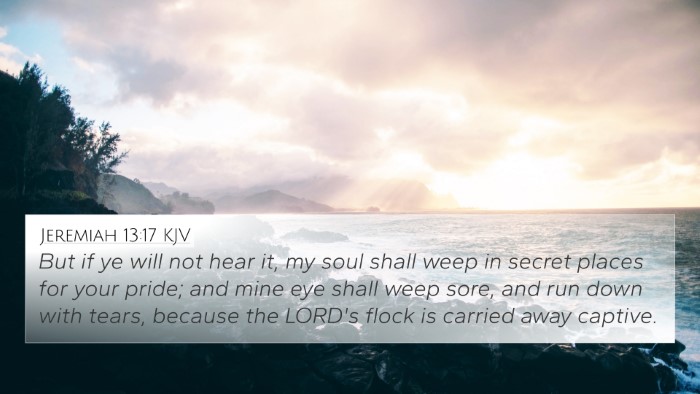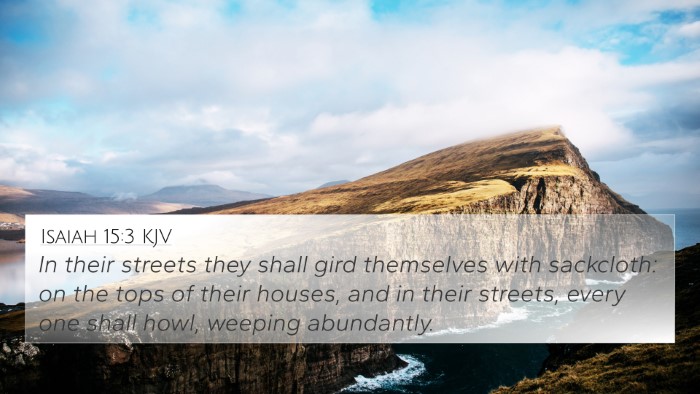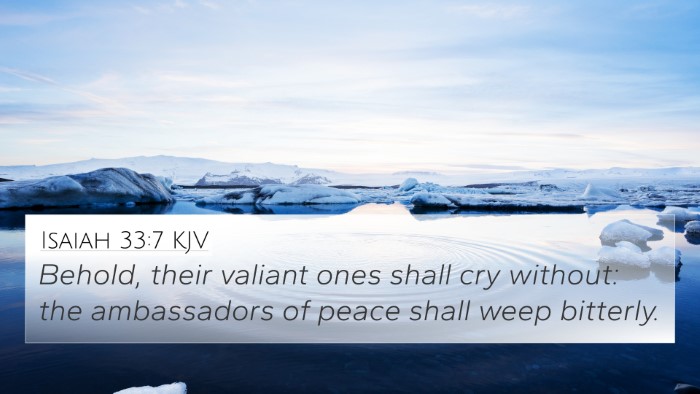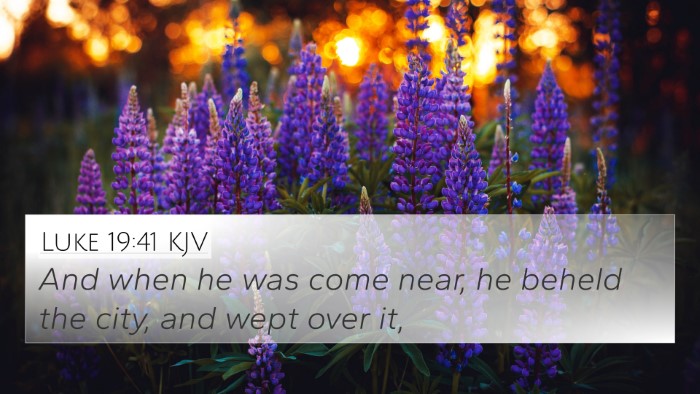Understanding Isaiah 22:4
Isaiah 22:4 states:
"Therefore said I, Look away from me; I will weep bitterly; labor not to comfort me, because of the spoiling of the daughter of my people."
This verse offers a profound insight into the sorrow and devastation faced by the people of Jerusalem during a time of calamity. Below is a summary of interpretations and connections drawn from esteemed public domain commentaries:
Meaning and Interpretation
-
Matthew Henry's Commentary:
Matthew Henry emphasizes the deep emotional response of the prophet Isaiah as he mourns the impending disaster and ruin that will befall his people. His posture of weeping signifies not only personal grief but also a shared sorrow for the sins and consequences faced by the nation.
-
Albert Barnes' Notes:
Barnes points out the poignant reality of Isaiah's plea to others to refrain from comfort. This implies that the mourning is so profound that mere words of consolation would be insufficient. The phrase "spoiling of the daughter of my people" underscores the tragic state of Jerusalem's inhabitants, burdened with despair due to their unfaithfulness to God.
-
Adam Clarke's Commentary:
Clarke offers insight into the historical context surrounding this verse. He notes that Isaiah's weeping symbolically represents the collective grief of God's people as they face the consequences of their rebellion against God. Clarke also presents that the 'daughter of my people' metaphorically refers to the city of Jerusalem, which illustrates the deep attachment Isaiah has for his homeland.
Key Themes
The verse touches upon several significant themes, including:
- Sorrow and Mourning: The emotional turmoil experienced by Isaiah and the people.
- Repentance: A call for acknowledgment of transgressions leading to divine judgment.
- Collective Grief: The shared anguish of the community in times of catastrophe.
Cross-References and Biblical Connections
- Lamentations 1:16: Expresses similar grief over the desolation of the city.
- Jeremiah 9:1: Jeremiah's lamentations echo Isaiah's sorrow for his people.
- Ezekiel 9:4-6: This passage reflects God's judgment and the mourning of the righteous.
- Psalm 137:1: The captives in Babylon weep, reflecting a parallel in Israel's sorrow.
- Isaiah 53:4: The suffering servant bears our grief, linking personal sorrow with collective sin.
- Matthew 5:4: "Blessed are those who mourn" speaks to the comfort found in expressing sorrow.
- Romans 12:15: "Rejoice with those who rejoice, weep with those who weep," emphasizes communal grief.
Tools for Bible Cross-Referencing
To explore connections between Bible verses, consider utilizing:
- Bible Concordance: A comprehensive tool to find specific terms and their occurrences.
- Bible Cross-Reference Guide: Helps to identify related scriptures efficiently.
- Cross-Reference Bible Study Methods: Techniques such as thematic studies or verse mapping can enhance understanding.
Conclusion
Isaiah 22:4 is a poignant reminder of the emotional and spiritual weight carried by prophets and the people of Israel. The interplay of grief, collective sin, and the pursuit of understanding through cross-referencing enriches our grasp of Scripture. By examining this verse alongside its connections, readers can discover broader themes of mourning and divine judgment that resonate throughout the biblical narrative.
Encouragement for Further Study
For those eager to delve deeper into the meanings of verses and their relationships, exploring cross-referencing tools and methods can yield profound insights into the Scriptures. Understanding how these verses interlink enhances not just knowledge but also the spiritual journey of any believer.


